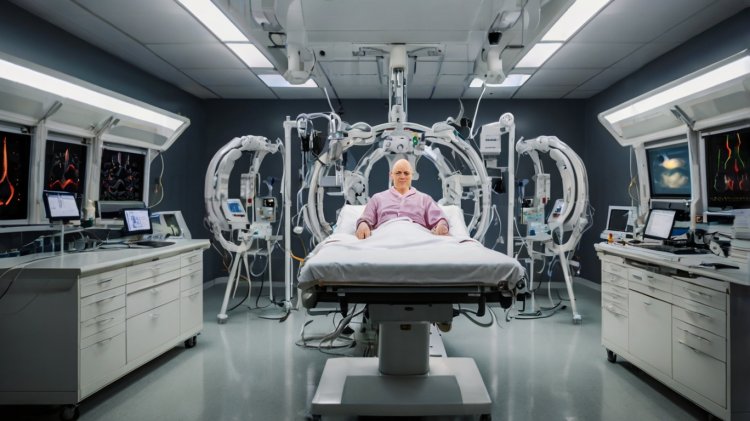Top 10 Game-Changing Advances in Cancer Research and Treatment Introduction
Explore the top 10 revolutionary breakthroughs reshaping cancer research and treatment. From innovative diagnostic tools to cutting-edge therapies, learn how these advancements are paving the way for a future free from cancer's grip.

Top 10 Game-Changing Advances in Cancer Research and Treatment
Introduction
Cancer continues to pose a significant global health challenge, with millions affected each year. However, recent breakthroughs in research and treatment offer renewed hope. From personalized vaccines to AI-driven diagnostics, these advancements are transforming how we detect, manage, and cure cancer. Here are the top 10 game-changing developments reshaping the future of cancer care.
1. Personalized Cancer Vaccines
Personalized cancer vaccines are revolutionizing treatment by training the immune system to target specific cancer cells. These mRNA-based vaccines, currently in trials across Europe, aim to reduce recurrence and minimize side effects compared to traditional therapies.
2. AI-Powered Early Cancer Detection
Artificial intelligence is enhancing early cancer diagnosis by analyzing complex imaging data and identifying subtle signs of disease. AI tools are being used to screen for lung, breast, and other common cancers, offering quicker and more accurate results.
3. CAR-T Cell Therapy Advances
CAR-T cell therapy has become a cornerstone of immunotherapy. By genetically modifying immune cells to attack cancer cells, this treatment has shown remarkable success, particularly in leukemia and lymphoma cases. Researchers are refining the technology to enhance its efficacy and safety.
4. Liquid Biopsies for Early Diagnosis
Liquid biopsies provide a non-invasive method to detect cancer by analyzing biomarkers in blood samples. This approach enables earlier diagnosis and ongoing monitoring without the need for surgical procedures.
5. Seven-Minute Cancer Treatment Jab
The development of a seven-minute injectable cancer treatment offers a faster and more efficient alternative to traditional intravenous infusions. This innovation is expected to improve patient convenience and reduce hospital workloads.
6. Targeting Dormant Cancer Cells
Researchers have uncovered ways to eliminate dormant cancer cells, which often evade treatment and later cause metastases. Targeting these “sleeping” cells could prevent cancer recurrence and improve long-term survival rates.
7. Precision Oncology
Precision oncology leverages genetic profiling to tailor treatments to the unique characteristics of a patient’s tumor. By targeting specific mutations, this approach minimizes side effects and improves treatment outcomes.
8. Synthetic Biopsies
Synthetic biopsies force cancer cells to reveal themselves at early stages, enabling timely intervention. This groundbreaking technique is especially promising for detecting hard-to-spot cancers like pancreatic and ovarian cancer.
9. Pancreatic Cancer Detection Breakthroughs
Pancreatic cancer, known for its poor prognosis, is now more detectable thanks to new biomarker-based tests. Early detection could significantly increase survival rates for this notoriously aggressive cancer.
10. Enhanced Radiotherapy Techniques
Innovative drugs, like RAGE inhibitors, are making radiotherapy more effective for resistant cancers. Personalized radiotherapy protocols maximize its benefits, offering hope to patients with advanced disease.
Conclusion
The fight against cancer is progressing rapidly, driven by unprecedented innovation and collaboration. These breakthroughs are not just extending lives but also enhancing the quality of life for cancer patients. Continued research and investment will be key to achieving a future where cancer is no longer a formidable threat.
FAQs
1. What is the most exciting development in cancer treatment today?
Personalized cancer vaccines and AI-powered diagnostics stand out as transformative advancements.
2. How does AI contribute to cancer care?
AI enhances diagnostic accuracy, predicts disease progression, and helps tailor personalized treatment plans.
3. What are liquid biopsies?
Liquid biopsies are non-invasive tests that detect cancer biomarkers in blood samples, allowing for early detection and monitoring.
4. Can dormant cancer cells be targeted?
Yes, recent research has identified methods to eliminate dormant cells, reducing the risk of recurrence.
5. Why is precision oncology important?
Precision oncology ensures treatments are tailored to the genetic and molecular profile of a patient’s tumor, improving outcomes and reducing side effects.








